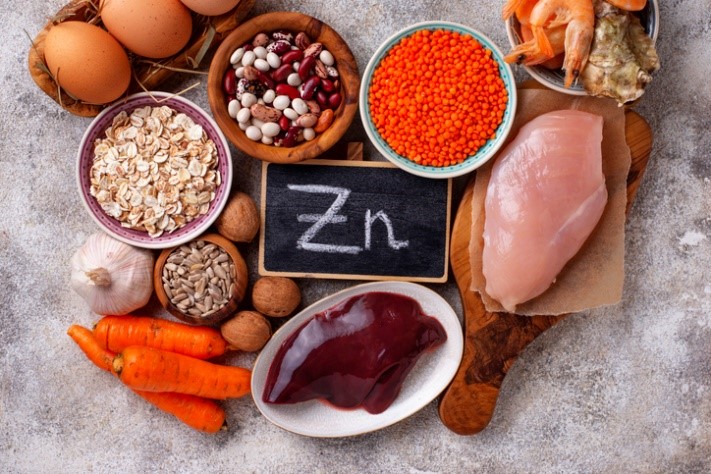Why is Zinc important for the immune system?
What is Zinc?
Zinc is a versatile trace element required as a cofactor by more than 100 enzymes, virtually all cells contain zinc, but the highest concentrations are found in muscle and bone.
Zinc roles in the body
Zinc supports the work of numerous proteins in the body, such as the metalloenzymes, which are involved in a variety of metabolic processes, including the regulation of gene expression, in addition, zinc stabilizes cell membranes, helping to strengthen their defense against free-radical attacks, zinc also assists in immune function, growth and development. Zinc participates in the synthesis, storage and release of the hormone insulin in the pancreas, also it is needed to produce the active form of vitamin A (retinal) in visual pigments and the retinol-binding protein that transports vitamin A.
How is zinc transported in the body?
Zinc’s main transport vehicle in the blood is the protein albumin, some zinc also binds to transferrin, the same that carries iron in the blood.
Zinc Deficiency
Severe Zinc deficiency sometimes will lead to the appearance of growth retardation specially in infants, causing immature development of body characteristics. Most common effects of zinc deficiency appear in digestion and absorption issues causing diarrhea, which worsens malnutrition among GI tract infections. Zinc deficiency can also cause damages to the nervous system which will lead to poor performance and directly impairs vitamin A metabolism.
Zinc toxicity High doses (more than 50mg) of zinc may cause vomiting, diarrhea, exhaustions and other symptoms.
Zinc Sources
Zinc is highest in protein-rich foods such as shellfish (oysters), meats, poultry, milk and cheese, legumes and whole grain are good sources of zinc too if eaten in large quantities.

Summery
Zinc requiring enzymes participate in a multitude of reactions affecting growth, vitamin A activity and immune system function. Protein rich food derived from animals are best sources of zinc.
At Linas and Dinas we make sure to provide all vitamins and elements that help to maintain and improve all body organs function by organizing food portions and providing the right number of elements and ingredients to assure a balanced meals plan to reach expectations in case for weight loss or only following a healthy lifestyle through all age groups.